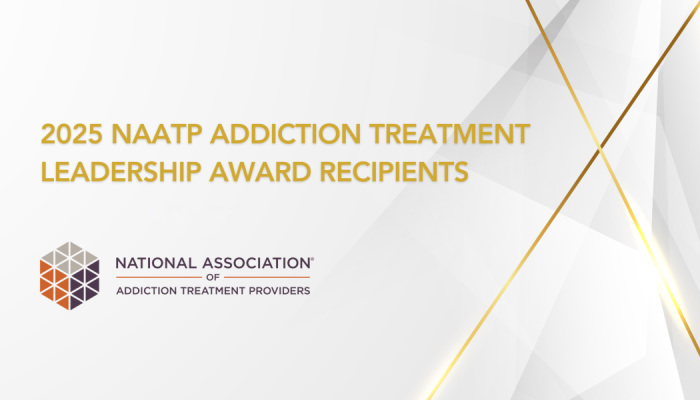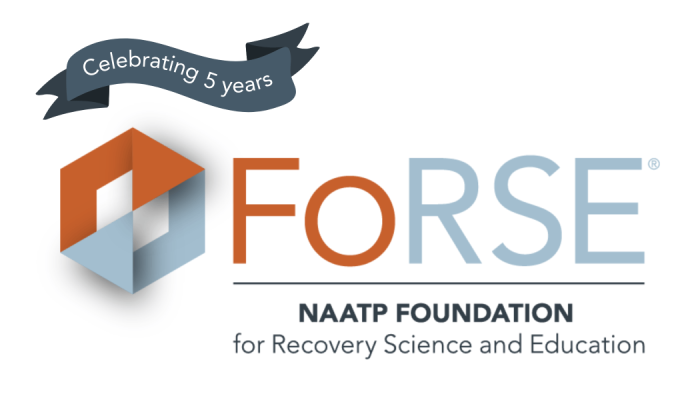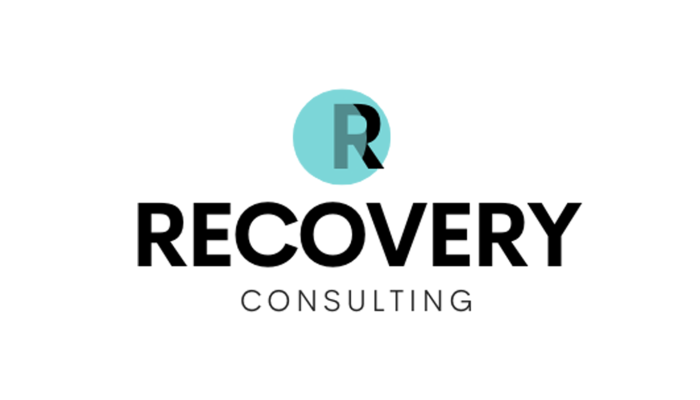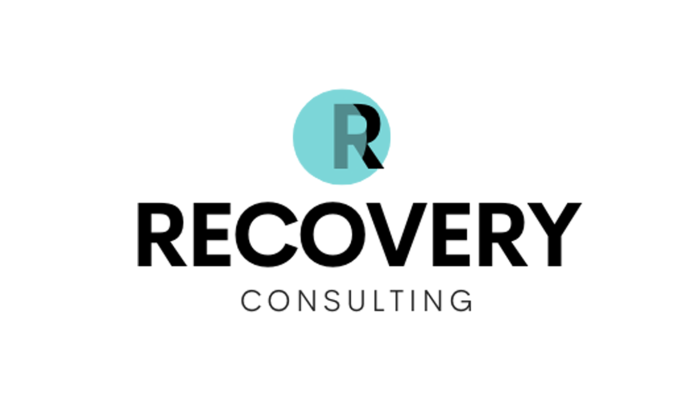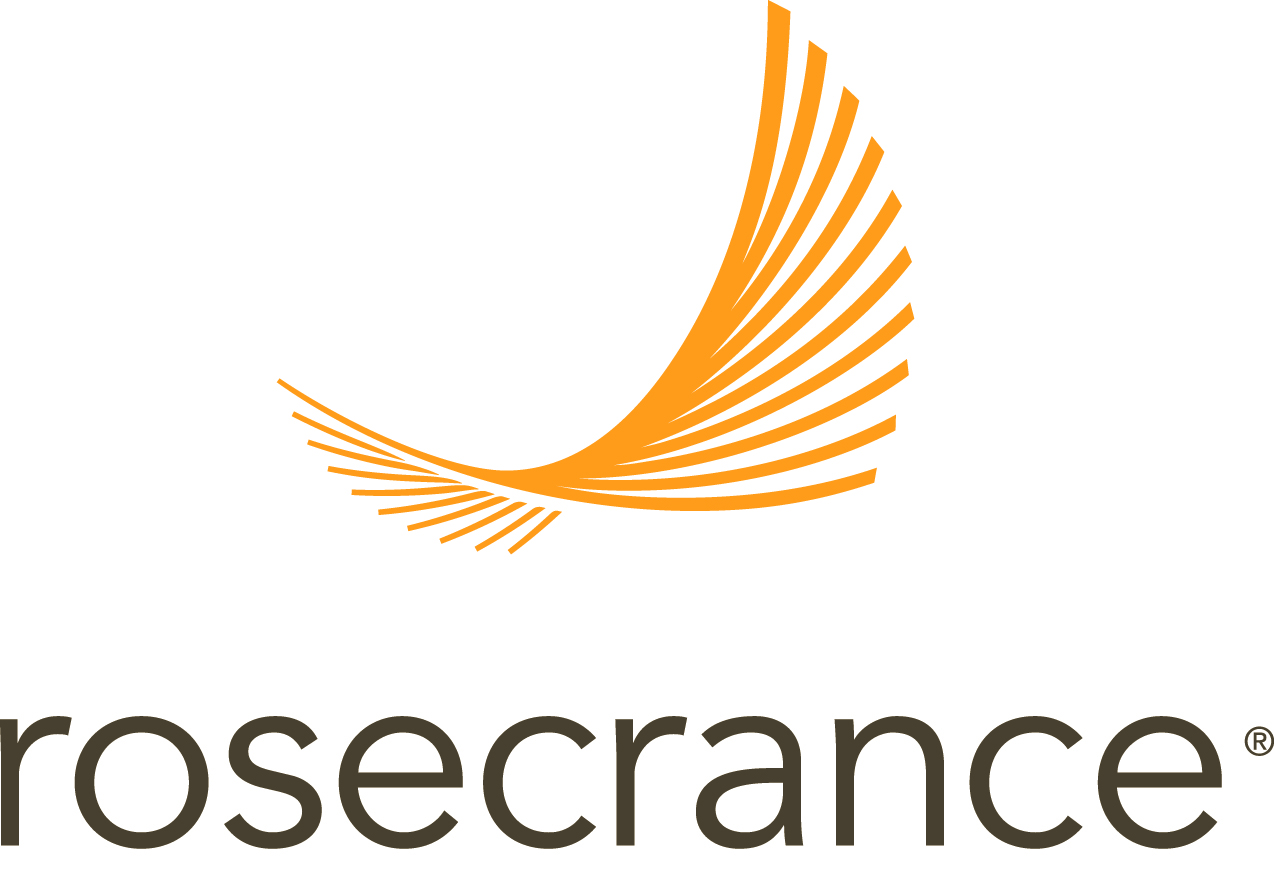Preamble
The National Association of Addiction Treatment Providers (NAATP) is a nonprofit professional membership association comprised of addiction treatment providers and entities that support addiction treatment. Founded in 1978, the mission of NAATP is to provide leadership, advocacy, training, and member support services to ensure the equitable availability and highest quality of addiction treatment.
The National Association of Addiction Treatment Providers and its members believe that Substance Use Disorder (a/k/a SUD or Addiction) is a primary and chronic disease of the brain accompanied by psychological and social conditions. Substance Use Disorder is a potentially fatal disease that negatively impacts an individual’s and a family’s life in the areas of physical health, mental health, employment, and legal and personal relationships. Substance Use Disorder is treatable through a comprehensive integrated system of health care that addresses an individual’s biological, psychological, social, and spiritual condition.
NAATP recognizes that differences in race, ethnicity, age, gender, gender identity, sexual orientation and many other social indicators lead to vastly disparate access to treatment. NAATP desires to be a voice for justice in our field. As treatment providers and recovery advocates, it is our responsibility to combat stigma and defend the humanity of every individual living with a substance use disorder (SUD). It is incumbent upon us, therefore, to stand up in the truth of that message and act. NAATP believes that DEIB Principles should be integral to our services and that health equity is critical to our field, and healthcare at large.
NAATP members provide SUD treatment and support. In so doing, NAATP members must adhere to the highest levels of professionalism and ethical conduct through the entire continuum and spectrum of clinical and business services, including development and marketing, admissions, treatment services, management, human resources; Diversity, Equity Inclusion and Belonging, and in relationships with the public, press, and policy makers. To ensure that NAATP members adhere to such responsibility and accountability, NAATP has adopted this Code of Ethics (Code). All NAATP members agree to abide by all provisions of the Code as a condition of membership and further agree to removal from membership for violating the Code based upon such a determination by NAATP. NAATP also offers this Code as an ethical conduct guide for addiction treatment providers outside NAATP membership.
Section I: Treatment
A. Specific admission, treatment, continuing care, and referral criteria must be developed and followed for every level of service provided.
B. Competent treatment services that address the physical, emotional, social, and spiritual needs of the patient, and where applicable the family, must be provided.
C. Treatment must enhance the dignity and protect the human and legal rights of the patient and family.
D. NAATP members must work to provide culturally responsive care. NAATP members should understand their shortcomings in these areas, and develop systems, trainings, and procedures to become welcoming to all, including individuals with diverse identities and backgrounds.
E. NAATP members must engage the patient in treatment planning and decision-making throughout the continuum of care.
F. NAATP members must be licensed for all services for which their regulatory body provides licensure and must comply with all such licensure requirements.
Section II: Management
A. Organizational structure, guiding principles, mission, and services must be available and stated clearly.
B. NAATP members must employ professional and credentialed staff, where credentialing is applicable, who subscribe to the professional and ethical standards of their disciplines.
C. NAATP members must foster relationships with other health care providers to ensure that they are an integral part of a community’s health care services system.
D. Fee structures must be reasonable, transparent, and available to the public.
E. NAATP members must prohibit and not engage in any way in discrimination against or harassment of any employee, applicant for employment, or patient because of race, ethnicity, national origin, age, religion, disability, sex, sexual orientation, gender identity and expression, veteran status, or any other characteristic protected under applicable federal or state law.
F. NAATP members must conduct ongoing internal evaluation of their operations as part of a commitment to ongoing improvement.
G. NAATP members must look at staff and patient demographics, and work to reduce inequities and healthcare disparities.
Section III: Diversity, Equity, Inclusion and Belonging (DEIB)
A. NAATP Members must reflect a commitment to DEIB by developing a DEIB vision, and work to align their programs and operations with this vision.
B. NAATP Members must dedicate resources to reducing healthcare inequities and building diversity, equity, inclusion and belonging in clinical and work environments.
C. NAATP members must develop policies and procedures that reflect attention to diversity, equity, inclusivity and belonging in clinical and operational practices.
D. NAATP Members must provide DEIB education to their board, leadership, and staff relevant to their role in the organization
E. NAATP members must seek relationships with leaders from communities facing healthcare disparities and where opportunities exist, provide support to these communities.
Section IV: Facilities
A. All applicable local, state, and federal life safety, occupational safety, health, and fire codes must be met.
B. NAATP members must comply with all applicable provisions of the Americans with Disabilities Act and any state or local statutes, rules, ordinances, or regulations governing access to real property for persons with disabilities.
C. A facility’s environment must honor the human dignity and rights of patients.
D. Facilities must be maintained and operated in a manner that enhances and integrates the local community.
E. Facilities and signage must be maintained in a way that is welcoming and inclusive of diverse patients and staff.
F. NAATP members must collect reasonable fees and rent from the patient for sober living and other non-clinical or ancillary services provided alongside outpatient services.
Section V: Marketing
A. Financial Rewards for Patient Referrals
- Patient brokering is prohibited. No financial rewards, substantive gifts, or other remuneration may be offered or received for patient referrals. NAATP members must not provide compensation for a patient referral. A NAATP member must not charge or receive compensation for providing a referral.
- NAATP members may refer families or individuals to treatment or recovery support professionals, including interventionists, continuing care providers, monitoring agencies, and referral sources that offer services to patients. NAATP members must not compensate such individuals or organizations in exchange for referrals, either in the form of direct payment, consulting contracts, fee splitting, or other compensation.
- An NAATP member may not engage in the buying and selling of patient leads including phone calls. Any collection or aggregation of leads for compensation is prohibited regardless of origination source, i.e., television ad, online directory, or other source.
- NAATP Members may not use misleading language in advertising. Search engine ads may not include language in the heading or ad text that includes the name of another treatment center. Ads may not reference locations where services are not provided, or services for which the provider is not licensed, or are not actually offered by the provider.
- Offering inducements and non-clinical amenities to prospective patients without collecting reasonable fees is prohibited.
- Routine waiver of patient financial responsibility related to deductibles and co-pays is prohibited. Waivers must not be provided except in the case of demonstrable financial hardship based on written objective criteria.
B. Deceptive Advertising or Marketing Practices
- NAATP Members must clearly brand all advertising. All advertisements and promotional materials must prominently display the treatment center name and brand. Advertisements placed through third parties such as addiction related websites must be marked as such.
- NAATP members must not engage in false, deceptive, or misleading statements, advertising, or marketing practices, including but not limited to services, license, and accreditation misrepresentation.
- NAATP Members must accurately reflect the level(s) of care offered, and for which the facility is licensed. Facilities providing outpatient clinical services along with a housing component must label clearly their program as such and distinguish themselves from licensed residential facilities. Providing information about services that the facility does not offer in a way that could suggest those services are available is prohibited.
- NAATP members must be transparent regarding their identity and services. NAATP members must provide prominent
- NAATP Members may not advertise or promote facilities or services not actually offered or in use. Facilities, services, or programs that are in development must be displayed as such.
- NAATP members must not utilize any form of false or misleading advertising, must not exploit patients and or families, and must not engage in competitive practices that are predatory or destructive to a collaborative marketplace.
- NAATP Members may not own, operate, or otherwise control directory type websites.
- Advertising must not include representations, including unsubstantiated representations, that are false or deceptive within the meaning of the Federal Trade Commission Act.
- NAATP members’ websites and marketing materials must reflect a commitment to cultural competence, and accurately represent patients, employees, and services.
C. Exposing Clients’ Identities for Marketing Purposes
- NAATP members must not exploit patients’ dignity and rights to privacy for any purpose at any point of marketing, admissions, or care, and must adhere to patient rights, law, and regulation.
- NAATP members must respect patients’ rights to privacy. Patients’ identities must not be revealed by a treatment provider, either in the form of photographic images, video images, media coverage, or in marketing testimonials, at any time during the client’s engagement. Use of a patient’s identity is permitted only following the completion of treatment and only with the patient’s written informed consent.
Adopted: January 2012
Amended: December 2017 as Version 2.0
Amended: February 2019 as Version 2.5
Amended: March 2021 as Version 2.55
Amended: March 2023 as Version 3.0
Amended May 3, 2023 as Version 3.1
Ethics Complaint Process
Learn more about the Ethics complaint process including our policy, procedure, and form.
Member Ethics Requirement
NAATP membership is a privilege. NAATP requires that all members adhere to NAATP Values, Membership Conditions, and the NAATP Code of Ethics. During the application and renewal process, members are required to attest that they have read, understand, and agree to adhere to each of these. Members must further agree that a failure to adhere, as determined in the sole discretion of NAATP, will result in disciplinary action by NAATP that may include: denial of membership application, corrective action by the member, or revocation of membership.




